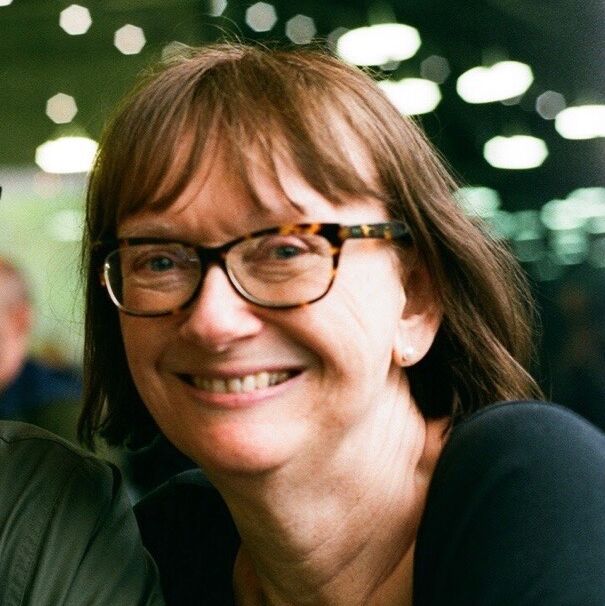Social Impact Symposium: Speakers & Abstracts
Angela Aguayo
Angela J. Aguayo is Associate Professor in the Department of Media and Cinema Studies and Dean’s Fellow in the College of Media at the University of Illinois, Urbana-Champaign. She is a scholar-media artist specialising in participatory and engaged cinema.
Her most recent book, Documentary Resistance: Social Change and Participatory Media (Oxford University Press, 2019) investigates the political impact and democratic possibilities of engaged production practice. Aguayo is an award winning writer, director and producer of documentary shorts utilised in community engagement campaigns, screening at festivals and museums around the world.
Related links:
Angela Aguayo will hold her presentation in the panel "Impact Strategies: Reaching Audiences, Working with Communities" on 12th August, 18.00 - 19.00 (CEST).
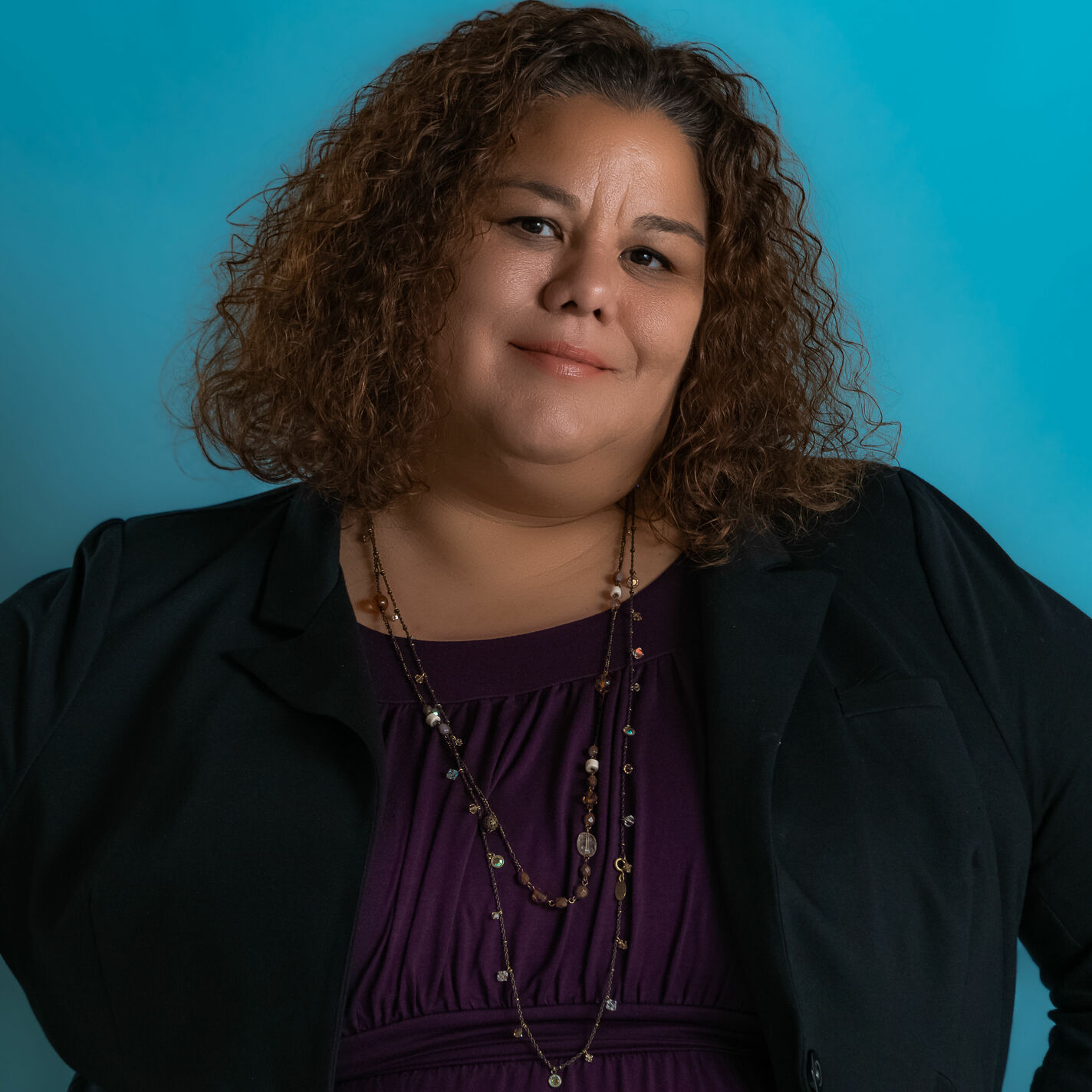
Naima Alam
Naima Alam is a media scholar in the Centre for Media Competence (ZFM) at the University of Tübingen, Germany. There she is part of an interdisciplinary Occupational Health Management (OHM) project titled BGM vital, funded by the Federal Ministry of Education and Research (BMBF).
She is also working on her doctoral thesis focusing on the utilities of explainer animations in development communication. Her research interests lie in the various roles of animation in development communication, social awareness, health literacy, and political activism.
Related links:
Naima Alam will hold her presentation in the panel "Fictional Forms and Impact" on 13th August, 15.00 - 16.30 (CEST).

Florence Ayisi
Florence Ayisi is professor of International Documentary Film at the Faculty of Creative Industries, University of South Wales, where she teaches and researches diverse aspects of documentary film theory and practice, identity politics and transnational cinema. She has taught film and media studies for over 25 years at several HEIs in the U.K. Ayisi’s research focuses on expanding revisionist dialogues around the decolonisation of African cultures, gender identity, cultural heritage, and spectatorship from Pan-African and woman-centred perspectives, within a transnational context and postcolonial framework.
She has extensive experience of producing documentary filmsin international contexts with resulting impact. Her most recent documentary film, The Bronze Men of Cameroon (2020)has been selected and programmed at several international film festivals and has won several awards. In 2017, Zanzibar Soccer Dreams(co-directed with Catalin Brylla, 2016) was shortlisted for the prestigious AHRC Research in Film Awards; International Development Award – Mobilising Global Voices category.
Florence Ayisi will hold her presentation in the panel "Non-Fictional Forms and Impact" on 13th August, 13.00 - 14.30 (CEST).
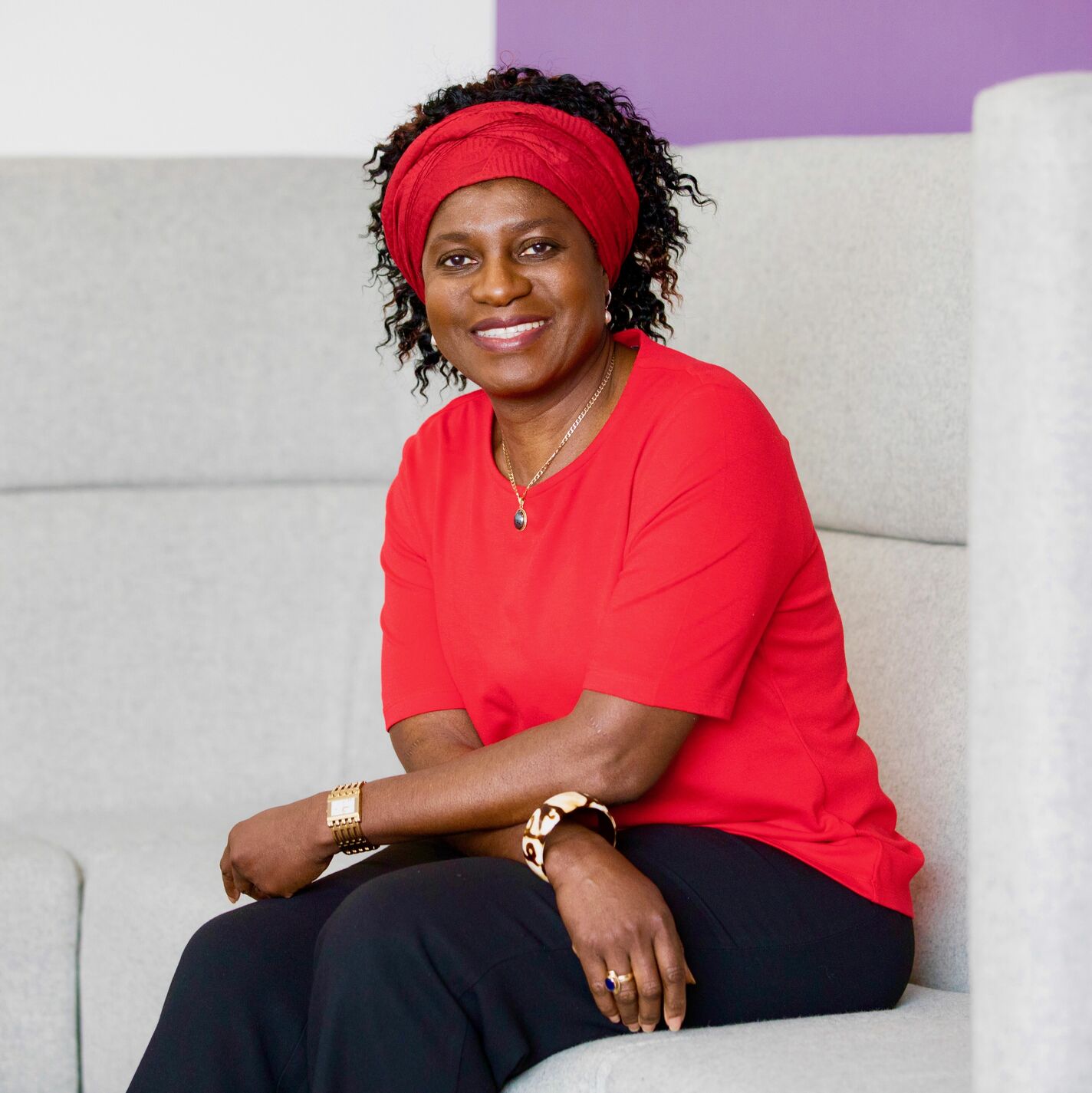
John Corner
John Corner is Visiting Professor in Media and Communication at the University of Leeds and Professor Emeritus of the University of Liverpool. Since the 1970s he has published widely on media history, documentary, political communication and cultural analysis in international journals and in books.
His monographs include Television Form and Public Address (1995) , The Art of Record (1996) Critical Ideas in Television Studies (1999), Political Culture and Media Genre (with Kay Richardson and Katy Parry, 2011) and Theorising Media (2014). His edited works include Documentary and the Mass Media (1986), New Challenges for Documentary (2nd edition with Alan Rosenthal, 2000) and Soundings: Documentary Film and the Listening Experience (with Geoffrey Cox, 2018).
John Corner will hold an introduction to the discussion on "Strategies and Ethics of Impact" on 12th August, 19.15 - 20.15 (CEST).

Frédéric Dubois
Frédéric Dubois is a journalist and producer of digital media, currently completing a research-creation PhD in film production at the Film University Babelsberg. His thesis is entitled 'Interactive documentary production and societal impact: the case of Field Trip'. Previously, he did practice-based research on alternative and community media, as well as internet-based communications.
He edited two books, Autonomous Media (2005)and Extraction! Comix Reportage (2007), and authored award-winning interactive storytelling features such as Atterwasch (2014)and Field Trip (2019). He is the Managing editor of Internet Policy Review - an open access journal on internet regulation published by the Alexander von Humboldt Institute for Internet and Society, Berlin.
Related links:
Frédéric Dubois will hold his presentation in the panel "Conceptualisations of Impact" on 12th August, 16.30 - 17.30 (CEST).

Patricia Finneran
Patricia is founder of Story Matterswhich creates innovative content, impact distribution strategies and media arts programs at the intersection of non-fiction and social engagement. She is dedicated to connecting media artists and movement leaders with funders, platforms and partners to advance social good, and support a vibrant public media ecosystem. At Sundance Institute Documentary Film Program she was Creative Producer for the Sundance|Skoll Stories of Change programs, and represented the documentary fund at forums around the world.
As Director of SILVERDOCS: AFI/Discovery Channel Documentary Festival from 2003 to 2008, she led its growth to become the largest documentary festival in the US and created the International Documentary Conference. Most recently, she led Doc Society’s Good Pitch Local program which seeds pro-social media partnerships for local artists and organisers in five US cities.
Related links:
Patricia Finneran will hold her presentation in the panel „Impact Strategies: Reaching Audiences, Working with Communities“ on 12th August, 18.00 - 19.00 (CEST).
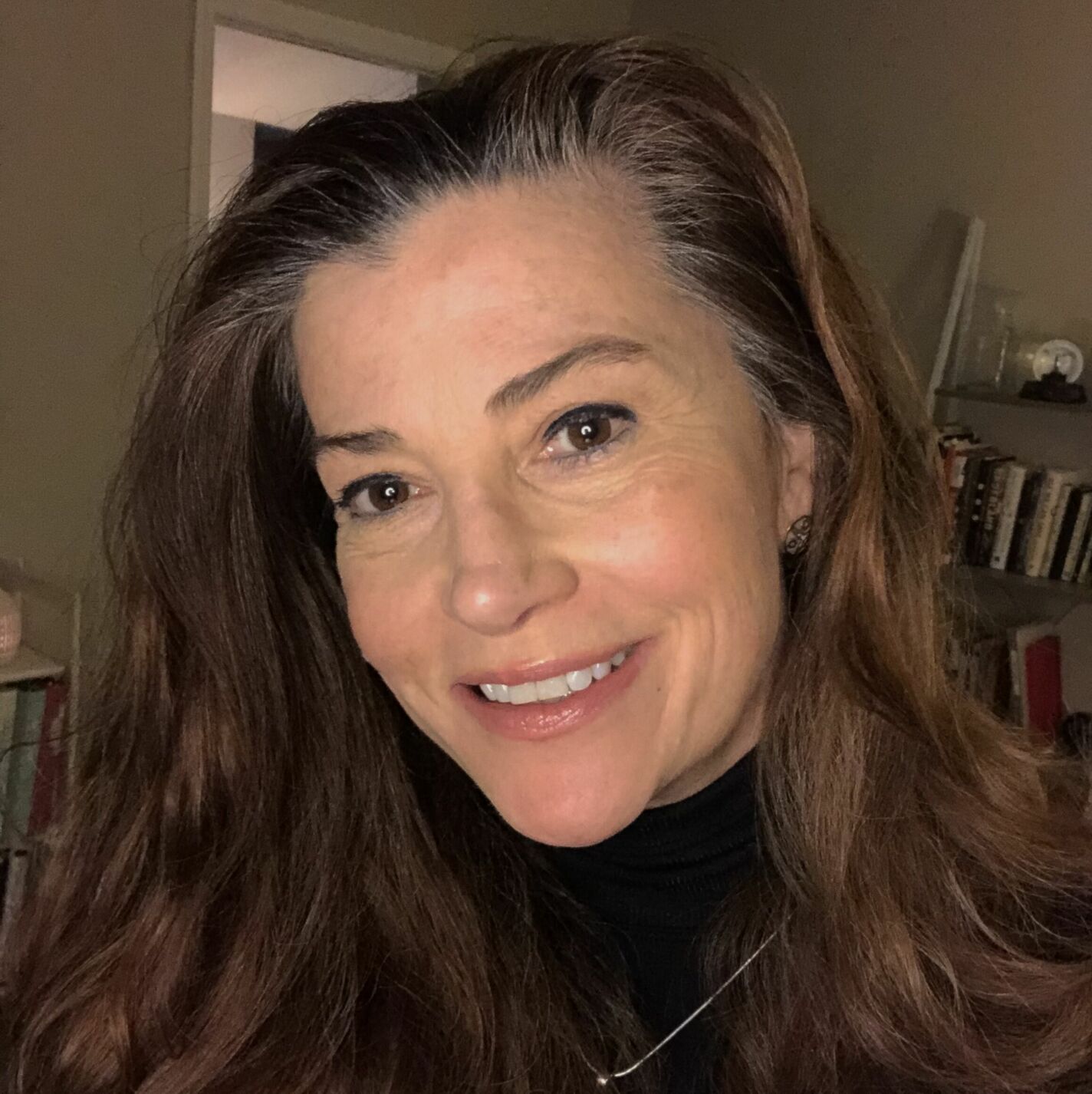
Peter Hartwig
Peter Hartwig was born in Babelsberg and studied there at the "Konrad Wolf" Academy for Film and Television. Since completing his studies, he has been involved in over 65 films in various areas of production - as producer, production manager and line producer.
With his own label kineo, Peter Hartwig produced the first TV movie by Andreas Dresen "Das andere Leben des Herrn Kreins" in 1993, in 2008 based on a script by Wolfgang Kohlhaase "Haus und Kind" (TV movie award Baden-Baden) with Andreas Kleinert, in 2011 as co-producer for Denis Dercourt`s "Zum Geburtstag" and in 2014 "Der Fall Bruckner" (Urs Egger). In 2010 and 2015 Peter Hartwig was awarded as "Fairest Producer of Germany" for the productions "Goethe!" and "Der Fall Bruckner". For the latter he received the Grimme Prize in 2015. Peter Hartwig has now worked and produced twice with Nora Fingscheidt. After the award-winning documentary WITHOUT THIS WORLD he also produced her feature film debut SYSTEMCRASHER. The film won the SILVER BEAR at the 69th Berlin International Film Festival 2019. Since then it has won over 28 awards at over 65 national and international festivals and was a German candidate for the OSCAR 2020.
Peter Hartwig will hold his presentation in the panel "Fictional Forms and Impact" on 13th August, 15.00 - 16.30 (CEST).

Samantha Iwowo
Dr. Samantha Iwowo, is a Senior-lecturer at the Bournemouth University, UK, and a filmmaker who commenced her career as a commissioned screenwriter with South Africa’s cable network, M-Net, writing several episodes of the daily drama series, Tinsel (2008 – present). She has written fifty published screenplays including the award-winning Oloibiri (2016)directed by Academy-Awards winning director, Curtis Graham, which premiered at the 2015 Cannes Film Festival.
One of her most recent screenplays, Mugabe (forthcoming), is a biography on Zimbabwean dictator, Robert Mugabe, commissioned by Theatron Media Inc., Canada. Iwowo is currently in the post-production phase of Paint-Brush, a research drama film into the socio-cultural priming of knife-crime gangs in South-East London involving teenager females.
Related links:
Samantha Iwowo will hold her presentation in the panel "Fictional Forms and Impact" on 13th August, 15.00 - 16.30 (CEST).
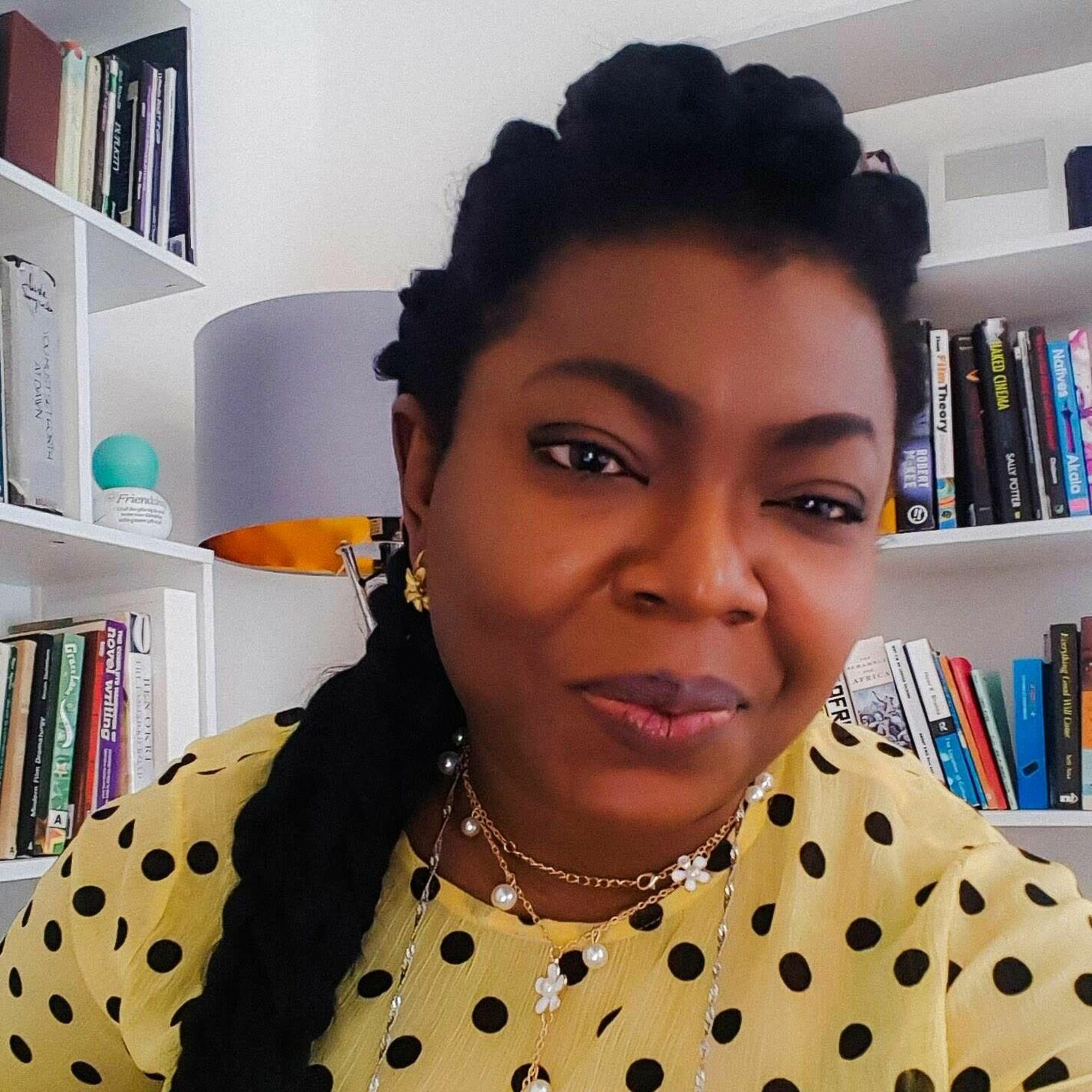
Dan Jackson
Dan Jackson is a researcher, educator and consultant in the field of media, communication, sport and politics. His research broadly explores the intersection of media and social change, including the construction of news, mediated disability representation, political communication, and journalistic role performance. He's a former convenor of the Political Studies Association Media and Politics Group and International Liaison for the International Communication Association's Communication and Sport Interest Group.
Alongside colleagues at Bournemouth University, he has led a string of publications around recent elections in the UK and USA. The election analysis reports provide over 80 short and accessible analyses of every part of the election, written by leading academics in the field, all published within ten days of the vote. He was co-investigator on a major AHRC project examining the cultural legacy of the Rio Paralympics, and am currently co-investigator on an AHRC-funded project that examines the role of constructive journalism as a response to the pandemic.
Dan Jackson will hold his presentation in the panel "Non-Fictional Forms and Impact" on 13th August, 13.00 - 14.30 (CEST).
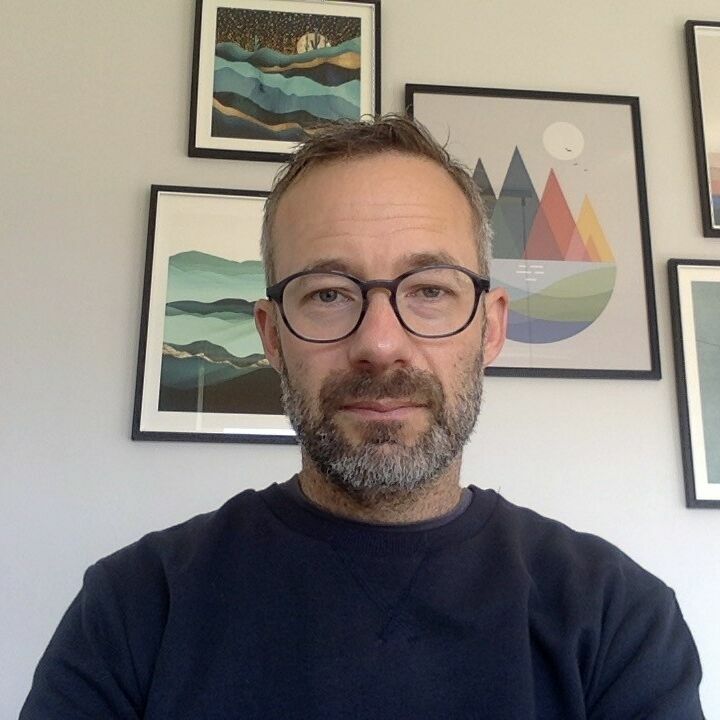
David Knight
David Knight is the Course Leader for BA (Hons) Film and Televisionat London College of Communication. He brings together a broad spectrum of skills to his professional practice as a director of photography and director at London College of Communication. His portfolio of creative work spans the panoply of the Film and Television industries: sponsorship idents, promos, drama, documentary, television commercials and feature films.
David shot sequences for the worldwide BBC broadcasts of the 2012 Olympic Games opening and closing ceremonies, installations at the Tate Modern and cinema and online platforms in the UK, Europe and international territories. As an educator, David has taught at many leading film schools and centres for the performing arts. His pedagogical practice includes, but is not limited to, the history of cinema, screen technology, production, cinematography, and directing.
David’s recent collaboration with Amnesty International, a six-part omnibus of investigative films in the ‘Protecting the Human’ series, was distributed at human rights festivals around the world and was screened at the U.S. Congress. This work prompted a presidential address by George W. Bush on waterboarding and human rights abuses by governmental agencies.
David Knight will hold his presentation in the panel "Video for Change" on 13th August, 11.00 - 12.00 (CEST).

Bettina Kurz
Bettina Kurz works as a Senior Analyst and Consultant for PHINEOin Berlin, Germany. PHINEO is a think tank and non-profit consultancy for effective societal engagement. PHINEO’s goal is to strengthen civil society by helping those doing good to achieve greater social impact. PHINEO conducts social impact analyses, awards a seal of approval for non-profit organisations and their projects and publishes information on societal issues.
Bettina specialises in impact analysis and impact-oriented organisational and program development. She offers workshops and individualised consulting for nonprofit organisations, foundations and philanthropists. Bettina authored the “Social Impact Navigator”, a practical guidebook for NPOs targeting better results. Prior to working for PHINEO, Bettina worked in the Civil Society program of Bertelsmann Stiftung (Germany). She studied philosophy and political science in Munich and Hamburg.
Bettina Kurz will hold her presentation in the panel "Conceptualisations of Impact" on 12th August, 16.30 - 17.30 (CEST).

Andrew Lowenthal
Andrew Lowenthal has been working in the field of freedom of expression, open technology, and video for change for more than 20 years. Andrew co-founded EngageMediain 2005. As EngageMedia Executive Director he has built multiple networks, overseen more than a dozen large-scale events and hundreds of workshops, and created a team of more than 30 people across nine countries.
In 2019 EngageMedia launched the Video for Change Impact Toolkit, a resource that focuses on short-form film-making and co-creation methodologies. EngageMedia also run Cinemata, an Asia-Pacific hub for social issue film.
Andrew is currently an Associate at the University of Tasmania, and was previously a Fellow at Harvard’s Film Studies Centerand Berkman Center for Internet & Society, and MIT’s Open Documentary Lab. In 2015, he was a Ford Foundation JustFilmsFellow.
Andrew Lowenthal will hold his presentation in the panel "Video for Change" on 13th August, 11.00 - 12.00 (CEST).

Sue Sudbury
Dr Sue Sudbury is an Associate Professor of Media Practice in the Faculty of Media and Communication at Bournemouth University. As a freelance documentary filmmaker, Sue produced and directed over twenty films for British television and then set up a production company, Sequoia Filmsto make films for both British and international markets.
Her personal research interests include auto and visual ethnography, participatory filmmaking and gender and political issues. Village Tales (2016)won many film festival awards including the Arts and Humanities Research Council Film Award for Innovation in 2016. Sue’s feature documentary Indian Space Dreams (2019)has been broadcast in over 100 countries and was long-listed for the 2021 Academy Award for Best Feature Documentary.
Related links:
Sue Sudbury will hold her presentation in the panel "Non-Fictional Forms and Impact" on 13th August, 13.00 - 14.30 (CEST).
